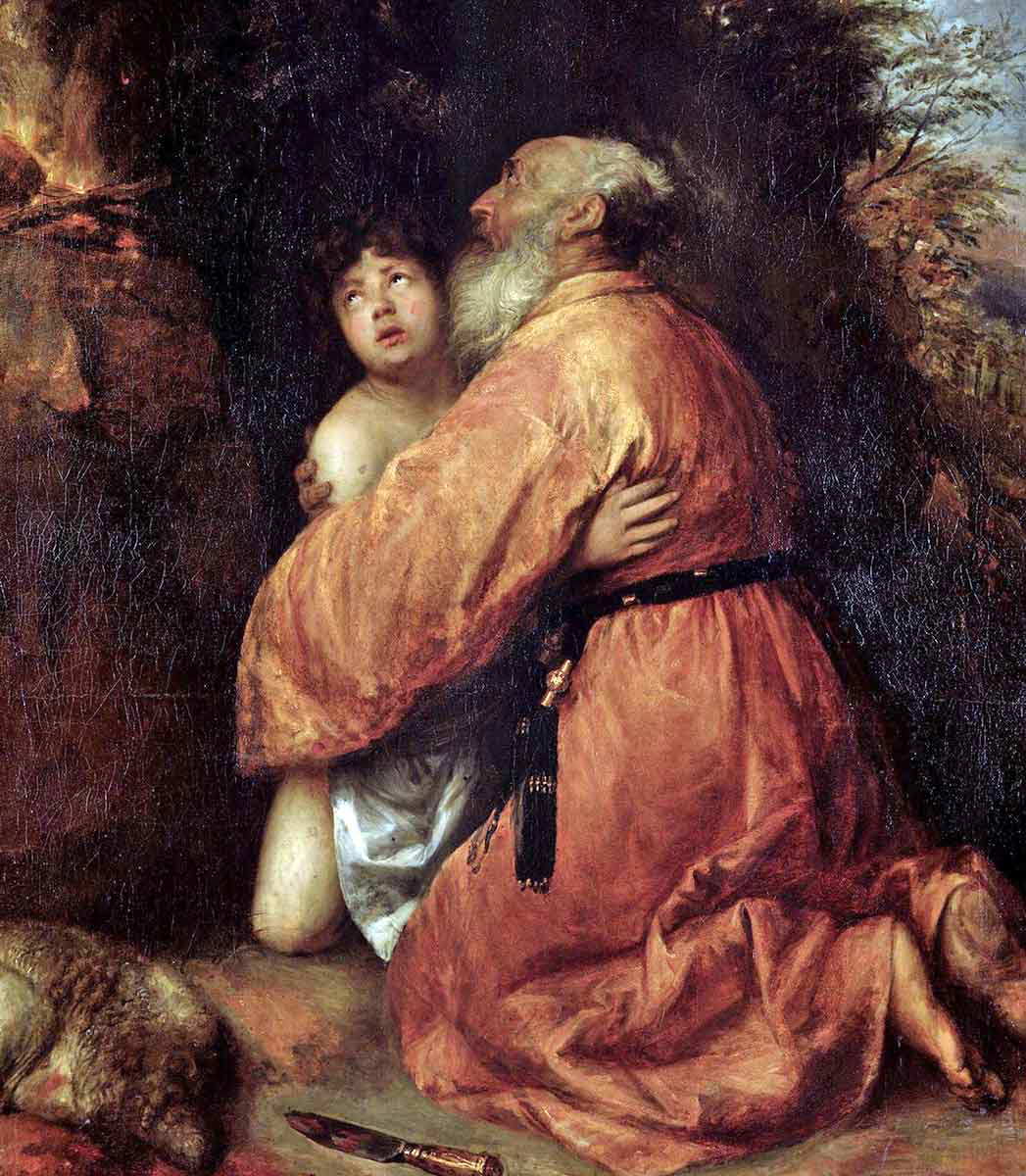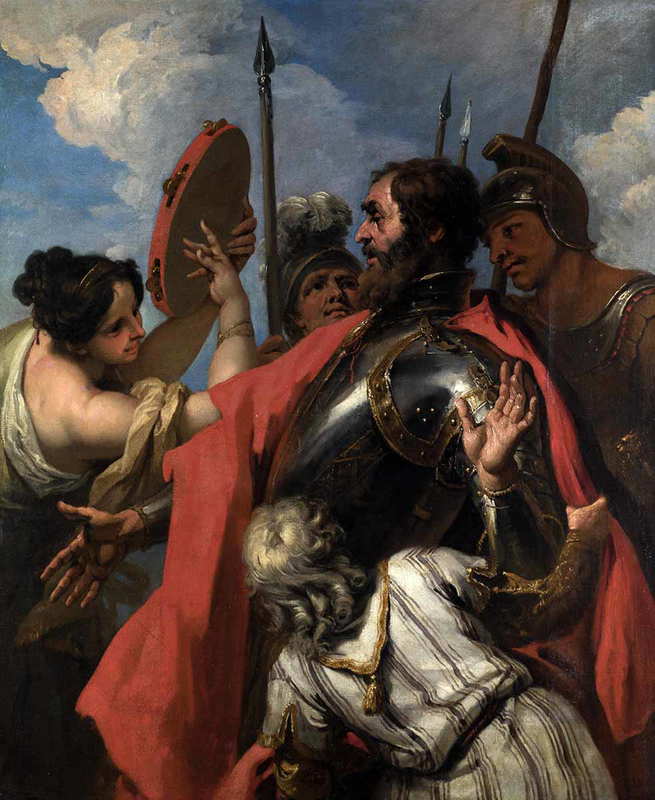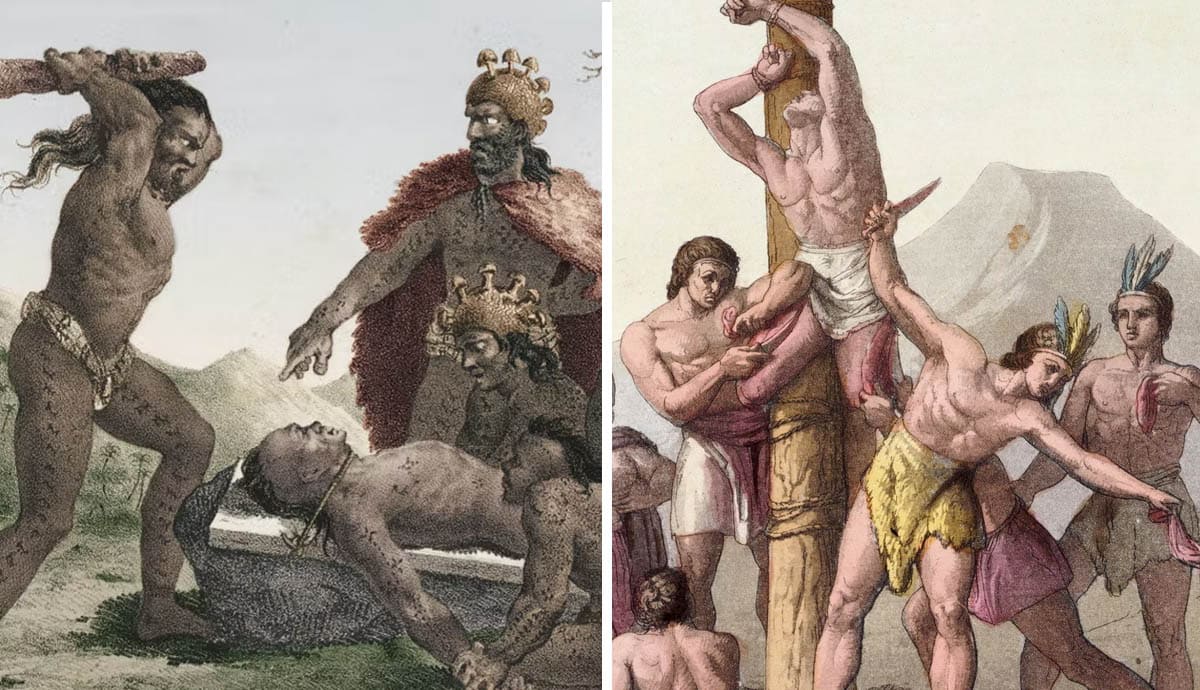
Several passages from the Torah and the prophetic books in the Hebrew Bible strongly condemn human sacrifice. There is no debate about the Bible’s stance on the practice. However, the very fact that the Bible condemns it suggests that the temptation to sacrifice humans was real for some members of the ancient Israelite community. At least two kings of Judah reportedly sacrificed their children and some scholars believe there is evidence of the practice in other, less explicit biblical passages.
What Was the Binding of Isaac?

The most well-known image evoking human sacrifice in the Bible is that of Abraham standing over his son Isaac with a knife in response to a divine demand. Famously, an angel intervenes to stop Abraham from following through with the killing, and Isaac’s place on the altar is taken by a wild ram whose horns have become entangled in the bushes nearby. While artists and authors alike have explored the anguish one assumes Abraham felt at having been commanded to sacrifice his child, the text indicates neither that the deity’s request surprised him nor that he hesitated to obey.
Shocking as it may be today, human sacrifice would not have been unheard of in the cultures in which Abraham moved, and there is no indication in the Bible of a divine prohibition against it of which Abraham could have been aware. The story, thus, has inspired a great deal of theological and ethical reflection, as well as debate.
What Role Did Jephthah and His Daughter Play?

During the period between Israel’s occupation of Canaan and the establishment of the monarchy, figures called “judges” governed in Israel. One of these, a man of Gilead, was called Jephthah. Initially rejected by his family because his mother was a prostitute, he was later called to return to his clan in order to lead them in their fight against their adversaries the Ammonites. The story goes that, before engaging in battle, Jephthah makes a vow to God. He promises that, if God would grant him victory, whatever would come out of his house first to meet him upon his triumphal return he would offer as a sacrifice.
Jephthah is victorious in battle. But tragically, his daughter and only child is the first creature to run out to meet him upon his return. Despite his remorse, the text says that Jephthah followed through with what he had promised.
Did the Kings Ahaz and Manasseh Sacrifice Their Children?

At least two kings of Judah (Israel’s southern kingdom after it divided), Ahaz and Manasseh, are said to have sacrificed their children. Most translations suggest that they offered them up to a deity named Molek. However, some scholars argue that the word “molek” refers to the type of sacrifice in question—they were “molek-sacrifices”—not to their recipient deity. If this is so, these kings may have thought that they were following an acceptable religious practice, and were doing so in devotion to Yahweh—not a foreign god. The puzzle for biblical scholars is that it is not clear when the Bible’s Torah—its legal material, which includes its prohibitions of human sacrifice—became known to Israelite kings. In retrospect, the Bible’s authors found these kings’ actions abhorrent. But it could be that they, like Abraham, they also did not see human sacrifice as beyond the pale of authentic religion.
Did King Mesha of Moab Sacrifice His Son?

In the stories of Jephthah, Ahaz, and Manasseh’s sacrificing of their children, no practical result is apparent. But in the story of King Mesha, a Moabite monarch, a human sacrifice seems to have effected the change that he sought. The story appears in the third chapter of II Kings, where the kingdoms of Judah and Israel join forces to fight against Moab, who has rebelled against Israelite oppression. When Moab’s army is overwhelmed by the Judah-Israel coalition forces, the text says that Mesha sacrificed his oldest son, the heir to his throne, as a burnt offering “on the wall.” Seemingly as a result of this action, the narrator says that “great wrath” came against the Israelite forces, and Mesha was able to route them before returning to his own land.
Did David Sacrifice the Sons of Saul?

II Samuel chapter twenty-one tells a story similar to the one about Mesha’s sacrifice. David, king of Judah, inquires of Israel’s deity Yahweh about the reason for a three-year famine in the land. The answer is that Saul, David’s predecessor, had apparently broken Israel’s treaty with the Gibeonites, a Canaanite people, and had killed some of them. Further details about what had happened are not provided in the Bible.
David asks the Gibeonites what would be necessary for restitution to be made, and they demand that seven of Saul’s sons be handed over to them for execution. David complies, and the Gibeonites kill the seven men on the first day of barley harvest.
The narrator says that their bodies were “hanged before Yahweh,” which suggests that this was a ritual killing functionally akin to sacrifice. The text says that, once the bodies had been interred, “God heeded supplications for the land” (NRSVue).
Was Human Sacrifice a Practice Abandoned by Proto-Israelites?

It is easy to assume on first reading of what the Bible says about human sacrifice that the ancient Israelites always saw it as a foreign and unwelcome practice. However, some scholars see evidence that human sacrifice may have once been an integral part of proto-Israelite religion, before finally being abandoned.
Passages in the Torah command the Israelites to “redeem” the lives of their firstborn sons with animal sacrifices or money. One passage simply states that every firstborn son must be given to God along with firstborn animals and the first fruits of each harvest without mentioning the possibility of redemption. These texts could be remnants of earlier instructions related to human sacrifice that were, thankfully, reformed and adapted to accommodate to the biblical community’s burgeoning rejection of the practice.
Despite these possible hints at a change from the past, the Bible in its extant form unequivocally opposes human sacrifice.










